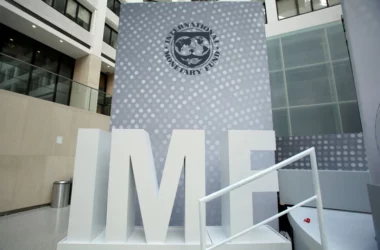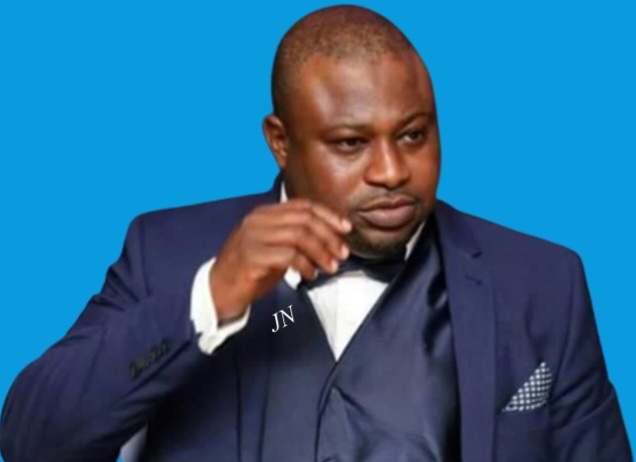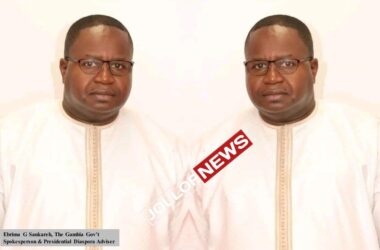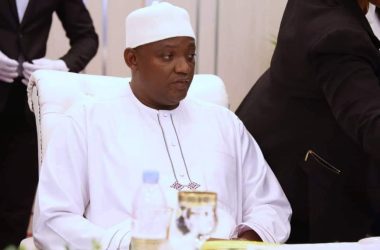I am deeply concerned with today’s developments regarding Momodou Sabally. Mr. Sabally was arrested on Wednesday 21st December 2022 and detained in police custody.
I learn with utter shock, concern and disappointment that the Attorney General’s Chambers today filed an ex-parte application seeking the detention of Mr. Sabally beyond the mandatory 72 hours expressly prescribed by the Constitution of The Gambia 1997.
Shortly after Mr. Sabally’s arrest on Wednesday, he was interrogated by the police serious crime/major crime unit in which he cooperated and even wrote a statement. That was the last time he was questioned by the police even though he continues to be under their custody. He was neither questioned yesterday nor today. This begs the question, what is the purpose and rationale for keeping Sabally in detention when the police do not seem to have any further questions for him? It is my opinion that if the police had a substantive and compelling case against Mr. Sabally, they would have either charged him or continue to interrogate him. He is not charged with any offence. Therefore, what is so profoundly exceptional and cogent to justify seeking a court order for his continuous detention? In this instance, Mr. Sabally continues to be detained, yet, he is not interrogated apart from the first few hours of his arrest.
Section 19(3)(b) of the constitution, on the protection of right to personal liberty, expressly provides that any person who is arrested or detained, on reasonable suspicion of having committed an offence or about to commit an offence under the laws of The Gambia, SHALL be brought before a court without undue delay, in any event, within 72 hours.
The constitution is the supreme law of the land. It is also the embodiment of the ideals and social, political and legal contract between the state and the citizens, from whom the state derives its sovereignty. That social contract is articulated in Chapter IV, on the protection of fundamental rights and freedoms. Section 17 of the constitution states that fundamental rights and freedoms enshrined in it MUST be respected and upheld by all organs of the Executive and its agencies, and shall be enforced by the courts in accordance with the constitution. The Police and Attorney General’s Chambers are both members of the Executive.
In January 2022, General Saul Badjie and others were arrested and detained without any criminal charge(s) preferred against them. The AG’s Chambers relied on an existing Practice Directive to seek their continuous detention, just like the instant case of Mr. Sabally, however, the High Court in February 2022, held that it was illegal to do so in the absence of a formal charge. The Practice Directive the State relies on clearly states that such an application shall only be brought where a person is held on a charge.
In Mr. Sabally’s case, it is my opinion that there is no legal and or justifiable basis for his continuous detention. The authorities are aware that the 72 hours will expire at 17:00 tomorrow. Even though Mr. Sabally is not charged, an ex-parte application is made to court by the AG’s Chambers to circumvent and usurp a mandatory provision of the constitution that is enshrined to protect fundamental rights and freedoms. It is my opinion that this is a deliberate and well-calculated exercise and it is an abuse of the law and the court process to achieve objectives that are not consistent with the letter and spirit of the constitution.

The Gambia Police Force, both in the Police Act and the constitution, are the primary custodians of preserving law and order and the enforcement of all laws and regulations with which they are charged. The Attorney General’s Chambers/Ministry of Justice is the principal legal adviser to government. The responsibility on both institutions is quite onerous and should be exercised with utmost good faith, sound judgment and impartiality, in the interest of all citizens, regardless of political affiliation.
The TRRC’s key mantra is Never Again. Never Again in terms of genuine institutional and transformative pursuits. State institutions capitulated under Jammeh and justice sector institutions acquiesced. The lessons from the TRRC are all too fresh and haunting to forget even before the ink is dry on the final report. We must be guided by justice and fairness. Fundamental rights and freedoms are sacrosanct in any democracy. The state is the primary duty bearer of these rights and freedoms. We cannot and we will not allow state institutions to be used to unfairly victimise and subjugate citizens just because we may have differing political opinions.
Mr. Sabally’s arrest and unreasonably prolonged detention is abhorrent. Today’s application is purposely designed to restrict his civil liberties and bypass a compulsory constitutional provision. Today it is Sabally. Tomorrow it could you. Collectively, we have a moral and political duty to challenge any semblance of abuse of power, especially by institutions assigned the primary responsibility of enforcing and upholding the law. We kept quiet for far too long and it resulted in entrenching and emboldening Jammeh. This time, I will use my wig and gown to defend the integrity of the constitution and the laws of the country and progressive democratic ideals that we legitimately expected following the removal of Jammeh through the ballot-box.
In conclusion, I state that the continuous detention of Mr. Sabally is an affront to democracy and respect for constitutional supremacy. I urge the authorities to do the right thing. In terms of today’s decision to legalise Mr. Sabally’s detention beyond 72 hours, I will challenge this decision and seek appropriate legal remedy in a court of competent jurisdiction.














